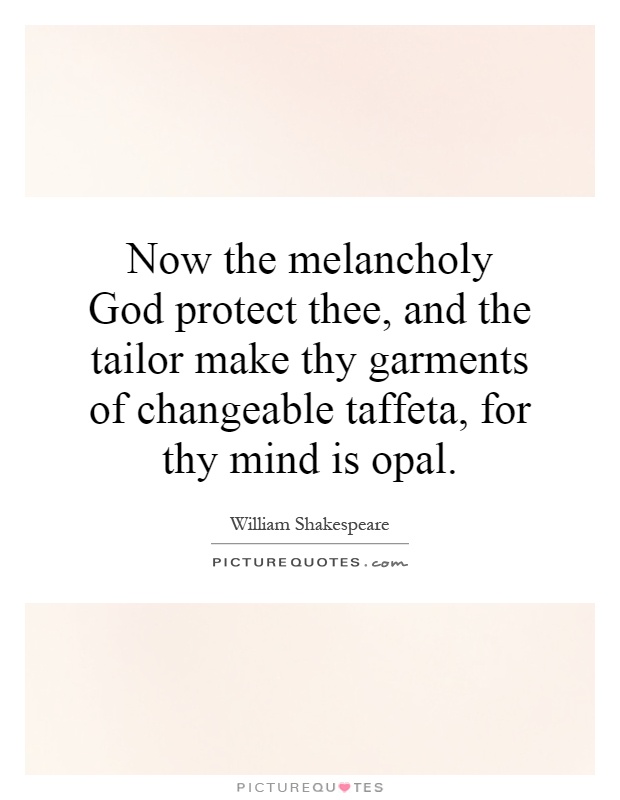Now the melancholy God protect thee, and the tailor make thy garments of changeable taffeta, for thy mind is opal

Now the melancholy God protect thee, and the tailor make thy garments of changeable taffeta, for thy mind is opal
The line "Now the melancholy God protect thee, and the tailor make thy garments of changeable taffeta, for thy mind is opal" is a beautiful and evocative piece of writing from William Shakespeare. It comes from the play "Twelfth Night," specifically from Act 2, Scene 4. In this scene, the character Sir Toby Belch is speaking to Sir Andrew Aguecheek, a foolish and easily manipulated character who is hopelessly in love with Olivia, the countess.The line is a wish for protection and transformation for Sir Andrew, who is described as having a "melancholy" disposition. The reference to the "melancholy God" suggests a sense of divine intervention or protection for someone who is feeling sad or despondent. The mention of the tailor making garments of changeable taffeta is a metaphor for transformation and change. Taffeta is a type of fabric that is known for its iridescent quality, changing color depending on the angle of the light. This suggests that Sir Andrew's mind is complex and multi-faceted, like the opal gemstone.
The use of the word "opal" is particularly interesting in this context. Opals are known for their unique play of colors, with flashes of different hues depending on the angle from which they are viewed. This could be interpreted as a reference to Sir Andrew's unpredictable and changeable nature. He is easily swayed by others and lacks a strong sense of self, much like the shifting colors of an opal.
Overall, this line captures the essence of Sir Andrew's character and his emotional state. It is a wish for protection and transformation, acknowledging his melancholy nature while also hinting at the potential for growth and change. Shakespeare's use of imagery and metaphor in this line is both poetic and profound, adding depth and complexity to the character of Sir Andrew and the themes of the play as a whole.












 Friendship Quotes
Friendship Quotes Love Quotes
Love Quotes Life Quotes
Life Quotes Funny Quotes
Funny Quotes Motivational Quotes
Motivational Quotes Inspirational Quotes
Inspirational Quotes